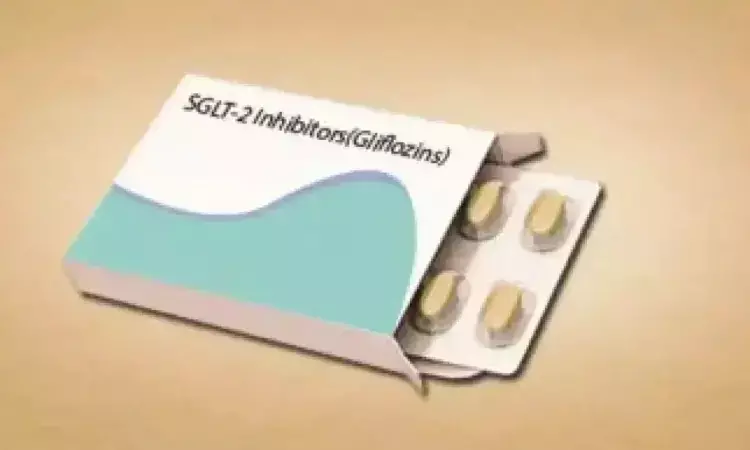- Home
- Medical news & Guidelines
- Anesthesiology
- Cardiology and CTVS
- Critical Care
- Dentistry
- Dermatology
- Diabetes and Endocrinology
- ENT
- Gastroenterology
- Medicine
- Nephrology
- Neurology
- Obstretics-Gynaecology
- Oncology
- Ophthalmology
- Orthopaedics
- Pediatrics-Neonatology
- Psychiatry
- Pulmonology
- Radiology
- Surgery
- Urology
- Laboratory Medicine
- Diet
- Nursing
- Paramedical
- Physiotherapy
- Health news
- Fact Check
- Bone Health Fact Check
- Brain Health Fact Check
- Cancer Related Fact Check
- Child Care Fact Check
- Dental and oral health fact check
- Diabetes and metabolic health fact check
- Diet and Nutrition Fact Check
- Eye and ENT Care Fact Check
- Fitness fact check
- Gut health fact check
- Heart health fact check
- Kidney health fact check
- Medical education fact check
- Men's health fact check
- Respiratory fact check
- Skin and hair care fact check
- Vaccine and Immunization fact check
- Women's health fact check
- AYUSH
- State News
- Andaman and Nicobar Islands
- Andhra Pradesh
- Arunachal Pradesh
- Assam
- Bihar
- Chandigarh
- Chattisgarh
- Dadra and Nagar Haveli
- Daman and Diu
- Delhi
- Goa
- Gujarat
- Haryana
- Himachal Pradesh
- Jammu & Kashmir
- Jharkhand
- Karnataka
- Kerala
- Ladakh
- Lakshadweep
- Madhya Pradesh
- Maharashtra
- Manipur
- Meghalaya
- Mizoram
- Nagaland
- Odisha
- Puducherry
- Punjab
- Rajasthan
- Sikkim
- Tamil Nadu
- Telangana
- Tripura
- Uttar Pradesh
- Uttrakhand
- West Bengal
- Medical Education
- Industry
SGLT2 inhibitors use tied to lower risk of kidney stones in patients with type 2 diabetes

USA: The use of SGLT2 inhibitors in adults with type 2 diabetes (T2D) may lower nephrolithiasis risk compared with GLP-1 receptor agonists or DPP4 inhibitors, a recent study has revealed.
The study findings, published in JAMA Internal Medicine, may help inform decision-making when prescribing glucose-lowering agents for patients at risk for developing nephrolithiasis.
The cohort study comprised 1 378 462 commercially insured adults with T2D initiated treatment with sodium-glucose cotransporter 2 inhibitors (SGLT2is), glucagon-like peptide 1 receptor agonists, or dipeptidyl peptidase 4 inhibitors. Those initiating SGLT2i treatment had a lowered risk of developing nephrolithiasis compared with those initiating the other two treatments.
There has been an increasing prevalence of kidney stones worldwide. Kidney stones are associated with substantial costs, cardiovascular disease, kidney function decline, and fractures. Type 2 diabetes is associated with an elevated risk of kidney stones.
SGLT2 inhibitors, a newer class of glucose-lowering agents with demonstrated renoprotective and cardiovascular benefits in clinical trials, might lower the risk of nephrolithiasis by altering urine composition and increasing urine volume. However, no studies have investigated the association between SGLT2i use and nephrolithiasis risk in patients receiving routine care in the US. To fill this knowledge gap, Julie M. Paik, Brigham and Women’s Hospital, Boston, Massachusetts, and colleagues aimed to investigate the association between SGLT2i use and nephrolithiasis risk in clinical practice.
For this purpose, they conducted a new-user, active comparator cohort study using data from commercially insured adults (aged ≥18 years) with type 2 diabetes who initiated treatment with GLP-1 receptor agonists, SGLT2 inhibitors, and DPP4 inhibitors between 2013 and 2020.
The primary outcome was nephrolithiasis diagnosis by the International Classification of Diseases codes in the outpatient or inpatient setting. New users of SGLT2 inhibitors had a 1:1 propensity score matched to new users of DPP4 inhibitors or GLP-1 receptor agonists in pairwise comparisons. Incidence rates, rate differences (RDs), and estimated hazard ratios (HRs) were calculated.
After 1:1 propensity score matching, 716 406 adults with T2D initiating an SGLT2i or a GLP-1RA (mean age, 61.4 years for both groups; 51.4% versus 51.2% female; 48.6% versus 48.5% male) and 662 056 adults initiating an SGLT2i or a DPP4i (mean age, 61.8 vs 61.7 years; 47.4% versus 47.3% female; 52.6% vs 52.7% male) were included.
The study led to the following findings:
- Over a median follow-up of 192 days, the risk of nephrolithiasis was lower in patients initiating an SGLT2i than among those initiating a GLP-1RA (14.9 vs 21.3 events per 1000 person-years; HR, 0.69; RD, −6.4) or a DPP4i (14.6 vs 19.9 events per 1000 person-years; HR, 0.74; RD, −5.3).
- The association between SGLT2i use and nephrolithiasis risk was similar by sex, race and ethnicity, history of chronic kidney disease, and obesity.
- The magnitude of the risk reduction with SGLT2i use was larger among adults aged younger than 70 years versus those aged 70 years or older (HR, 0.85; RD, −3.46 per 1000 person-years).
"These results suggest that nephrolithiasis risk could be a consideration when deciding among glucose-lowering agents for patients with type 2 diabetes," the researchers concluded.
Reference:
Paik JM, Tesfaye H, Curhan GC, Zakoul H, Wexler DJ, Patorno E. Sodium-Glucose Cotransporter 2 Inhibitors and Nephrolithiasis Risk in Patients With Type 2 Diabetes. JAMA Intern Med. Published online January 29, 2024. doi:10.1001/jamainternmed.2023.7660
Dr Kamal Kant Kohli-MBBS, DTCD- a chest specialist with more than 30 years of practice and a flair for writing clinical articles, Dr Kamal Kant Kohli joined Medical Dialogues as a Chief Editor of Medical News. Besides writing articles, as an editor, he proofreads and verifies all the medical content published on Medical Dialogues including those coming from journals, studies,medical conferences,guidelines etc. Email: drkohli@medicaldialogues.in. Contact no. 011-43720751


